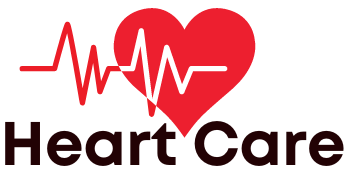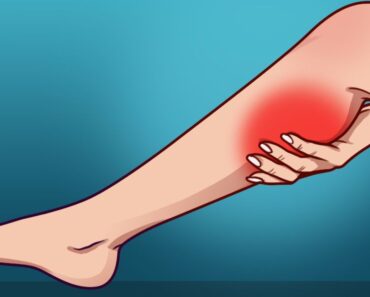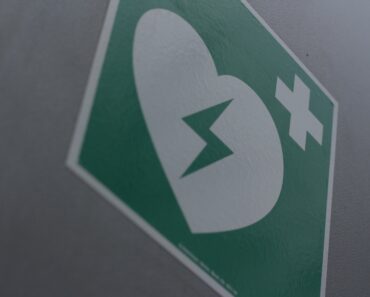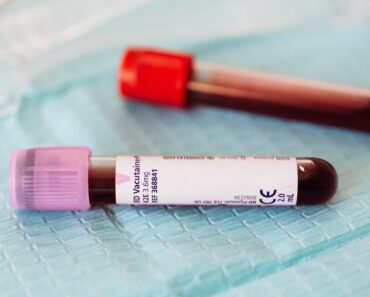According to the International Society of Nephrology, nearly 14% of the adult population worldwide is estimated to have some form of kidney disease. Some of the common kidney diseases that affect people around the world include chronic kidney disease, diabetic neuropathy, UTI kidney infection, and various types of kidney cancer.
Early detection and proper kidney disease treatment can often keep kidney diseases from getting worse. Also, you must know the symptoms of kidney disease and the causes so that you can take preventative measures and seek chronic kidney disease treatment at the earliest stage.
Below are warning signs which indicate that your kidneys are not working properly.
1. Dry, Itchy Skin

© Depositphotos
Itching of the skin, dry skin, hyperpigmentation, and jaundice are common symptoms of chronic kidney disease. These symptoms are an indication that there’s an excess amount of phosphorus and other toxins in the body that aren’t being eliminated properly. Constant itching may lead to you having patches of irritated skin or scratch marks on your skin. You should see a doctor if you experience itchy skin.
2. Swelling Over the Ankles, Feet, Face and Eyelids

© Depositphotos
Swelling in these parts of the body may be caused by sodium retention and retention of fluids. Failing kidneys may not be able to eliminate water waste, which builds up in the body causing swelling in these body parts. You’ll start to notice edema which pits on applying pressure. To reduce swelling, doctors may prescribe diuretics or advise you to reduce your daily salt or fluid intake.
3. Anemia

© Depositphotos
Anemia is a blood disorder that occurs when your red blood cell count is less than normal. This condition is a common complication of chronic kidney disease, because damaged kidneys may not be able to produce enough of erythropoietin (a hormone that stimulates the production of red blood cells).
If you have anemia, you may develop a variety of symptoms including fatigue, shivering, insomnia, shortness of breath, weakness, chest pain, irregular heartbeats, and dizziness.
4. Bad Breath

© Depositphotos
Kidney disease can lead to unpleasant breath because of the smell of the toxins that would be filtered out of your body by healthy kidneys. Patients with kidney problems experience this symptom because of excessive waste in the blood. These toxins are exhaled through the lungs and can cause bad breath. Kidney failure treatment and good oral habits can go a long way toward controlling bad breath caused by kidney disease.
5. Muscle Cramps

© Depositphotos
Impaired kidney function can cause electrolyte imbalances and excess fluid retention, all of which can lead to muscle cramps and chronic nephritis. Muscle pain in patients with kidney problems can also be caused by nerve damage, magnesium and potassium deficiency, or blood flow problems.
If you have kidney problems and you’re experiencing muscle cramps, you can leverage both pharmacological strategies and non-pharmacological strategies to manage the condition with the guidance of a nephrologist.
6. High Blood Pressure

© Depositphotos
Uncontrolled high blood pressure can impair kidney function over a short period. High blood pressure can cause damage to the dense network of blood vessels in the kidneys, making it harder for them to deliver enough blood to the kidney tissue and regulate blood pressure.
Furthermore, damaged blood vessels in the kidney lose their ability to filter blood and regulate fluids and salts in the body.
7. Panic Attacks

© Depositphotos
People with chronic kidney disease may be at a higher risk of experiencing panic attacks and anxiety somatic symptoms such as sweating, breathlessness, palpitations, chest pain, and sudden changes in blood pressure. Research published in the International Journal of Nephrology and Renovascular Disease indicates that 12%-52% of people with chronic kidney disease have anxiety disorder at some point.
If you have symptoms of panic, ensure you consult with a nephrologist and get a full examination.
8. Tachycardia

© Depositphotos
This is a condition where your heart suddenly beats much faster than normal (more than 100 beats per minute). Patients with chronic kidney disease are predisposed to heart rhythm disorders because damaged kidneys are not able to get excess mount of potassium out of the body. If you experience symptoms such as palpitations, shortness of breath, and rapid pulse rate, you should see a doctor immediately.
9. High Fever and Backaches

© Depositphotos
Various types of kidney problems such as kidney tumors, renal cancer, renal mass, and UTI kidney infection can lead to high fever and backache. High fever is one of the first signs that your body is fighting an infection. Increasing the body’s temperature is one way your immune system fights the infection.
If you feel constant pain in the upper half of your back, more so under your ribcage, you should seek kidney failure treatment as soon as possible.
So there you have it. These are the most common signs of kidney disease. If you have the aforementioned symptoms, be sure to seek CKD treatment from a reputable nephrologist as soon as possible.
A competent nephrologist can handle all kinds of kidney problems including UTI kidney infection, renal mass, kidney tumor, kidney cancer prognosis, kidney cancer treatment, renal cancer, and more.
Kidney Disease Treatment
Kidney disease treatment varies and may include kidney disease medications, dialysis or transplant in the later stages. Often though, chronic kidney disease has no cure but hemodialysis, home remedies and other forms of kidney failure treatment can help patients feel better and live longer.



